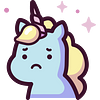Take a photo of a barcode or cover
This book was a stunner. One of the best works of speculative fiction I have read recently. Prayaag Akbar's chilling tale of a mother's search for her daughter is set in an Urban India that has been pushed to communal segregation driven by hate and the struggles for access to resources, clean air and water. It is a world of walled communities connected by flyovers and protected within geo-domes with a slum of the marginalized people living below them. The dystopian world Akbar builds is disturbingly familiar and frightening. It explores class privilege with subtle references to caste, community and dietary preferences. And the ending was such a punch in the gut. Absolutely brilliant!
P.S - Popsugar 2018 prompt - A book you meant to read in 2017 and didn't get to it
P.S - Popsugar 2018 prompt - A book you meant to read in 2017 and didn't get to it
3.5*
this was a looong read for me bc it really hit the _*°traumaaa spot°*_
I also had issues with the pacing and some of the narrative structure but it was still good!
this was a looong read for me bc it really hit the _*°traumaaa spot°*_
I also had issues with the pacing and some of the narrative structure but it was still good!
An unflinchingly honest story about privilege in the Indian context. This book nudges its audience into questioning the society around them at a crucial time in Indian politics, achieving this through a gripping fictional narrative with amazingly well written characters. The only shortcoming in my view is that the plot is anachronistic, which made me feel like the story occasionally loses its way. Overall though, a great read. I look forward to the Netflix adaptation!
Leila is set in the near-future in a huge cosmopolitan Indian city. A Hindutva neoliberal dystopia. The city is broken up into sectors where various upper castes from all religions live in isolation, cut off from those too poor/ disenfranchised to construct walls themselves. There they live in complete apathy and comfort, blissfully unbothered about what they are doing to The Outside. Striving for more and more "purity".
If this doesn't sound all that outlandish or unfamiliar, that's because it is more or less what has India been since quite a long while ago. The walls are just not as literal in real life. ('As' being the operative word here.) Though that's rapidly changing right now. It's impressive when speculative fiction takes the absurdities of real life to their logical extreme, but not if the real life is already too absurd to cause the fiction seem not so extreme. 'Leila' feels a bit unimaginative. Most of the events encountered in the plot, while well-crafted, have happened or came close to have happened in Hindu India.
'Leila' is the story of Shalini, an upper caste woman who is banished to the Outside for having lost her way by marrying outside her caste- a Muslim, and living "secularly". Her husband is murdered and her daughter Leila is taken away from her. 'Leila' follows her resolute search for her daughter.
The author does a great job of writing a female character in first person (as much as I am to be relied in making that judgement.) The plot is devoid of any distractions; flows smoothly. But, the prose felt turgid in places. Word choices felt unjustified.
Other than that though: solid book. Very few speculative fiction books set in India- that's what made me read this book in the first place.
Spoiler
By the end they seal off the main sector under a dome to even separate the air they breathe.If this doesn't sound all that outlandish or unfamiliar, that's because it is more or less what has India been since quite a long while ago. The walls are just not as literal in real life. ('As' being the operative word here.) Though that's rapidly changing right now. It's impressive when speculative fiction takes the absurdities of real life to their logical extreme, but not if the real life is already too absurd to cause the fiction seem not so extreme. 'Leila' feels a bit unimaginative. Most of the events encountered in the plot, while well-crafted, have happened or came close to have happened in Hindu India.
'Leila' is the story of Shalini, an upper caste woman who is banished to the Outside for having lost her way by marrying outside her caste- a Muslim, and living "secularly". Her husband is murdered and her daughter Leila is taken away from her. 'Leila' follows her resolute search for her daughter.
The author does a great job of writing a female character in first person (as much as I am to be relied in making that judgement.) The plot is devoid of any distractions; flows smoothly. But, the prose felt turgid in places. Word choices felt unjustified.
Other than that though: solid book. Very few speculative fiction books set in India- that's what made me read this book in the first place.
A highly remarkable original novel by an Indian writer. Akbar's dystopia is right up there for me with that of Huxley or Orwell, only that it touches a nerve closer to home.
dark
mysterious
reflective
sad
slow-paced
Plot or Character Driven:
Character
Strong character development:
Complicated
Loveable characters:
Yes
Diverse cast of characters:
Yes
Flaws of characters a main focus:
Complicated
I'm giving this one three stars because I'm not sure if I actually read the novel proper; Leila was originally published by Simon & Schuster in 2017, but I ended up reading an edition by Faber & Faber, and according to a Wikipedia summary they seem quite different. This sounds weird, but would explain why I felt less enamoured with what I read than most.
It has to be emphasised that the themes that the novel discusses are absolutely pertinent at present, and Akbar succeeds in linking them together, as they often are in reality. Rising nationalism is often linked to economic and environmental concerns. He also examines the nuances of Indian and wider South Asian societies with regards to caste, class, religion and other divisions well.
However, Akbar's choice to present the story in a non linear fashion makes it hard to follow. How this dystopia came to be is never clearly presented, and Akbar's sparse writing style meant that getting a detailed picture was hard. Of course, these flaws may be due to the aforementioned discrepancies in publication. Still, it meant that my particular reading experience felt haphazard a lot of the time, and at times I struggled to get through Leila.
As for the characters, I do appreciate the effort to make Shalini a realistic product of her upbringing and environment, but at times felt that she became a bit too unsympathetic. Not that it diminishes the horror she endures throughout the course of the novel.
Given my confusion as to whether or not I read the actual novel, I can't in good faith recommend it until I can clarify exactly what I read.
It has to be emphasised that the themes that the novel discusses are absolutely pertinent at present, and Akbar succeeds in linking them together, as they often are in reality. Rising nationalism is often linked to economic and environmental concerns. He also examines the nuances of Indian and wider South Asian societies with regards to caste, class, religion and other divisions well.
However, Akbar's choice to present the story in a non linear fashion makes it hard to follow. How this dystopia came to be is never clearly presented, and Akbar's sparse writing style meant that getting a detailed picture was hard. Of course, these flaws may be due to the aforementioned discrepancies in publication. Still, it meant that my particular reading experience felt haphazard a lot of the time, and at times I struggled to get through Leila.
As for the characters, I do appreciate the effort to make Shalini a realistic product of her upbringing and environment, but at times felt that she became a bit too unsympathetic. Not that it diminishes the horror she endures throughout the course of the novel.
Given my confusion as to whether or not I read the actual novel, I can't in good faith recommend it until I can clarify exactly what I read.
dark
emotional
reflective
sad
tense
fast-paced
dark
emotional
tense
fast-paced
Plot or Character Driven:
A mix
Strong character development:
Yes
Loveable characters:
Complicated
Diverse cast of characters:
Yes
Flaws of characters a main focus:
Yes
Leila follows, and is first-person narrated by, Shalini, a mother searching for her daughter Leila. The book alternates between Leila's past -- her childhood, meeting her husband Riz, and their life together as interfaith newlyweds and new parents -- and her present, in a city starkly stratified by class, caste, and religion. This is a society in which women are treated as bearers of culture and "Purity For All" is prized above all else, and which is rapidly becoming more divided and more polluted as class divides widen. In the present, Leila is an outcast, labelled as having been 'impure' for her marriage to a man of a different religion from a different 'sector' of town (he being Muslim, she Hindu). This was really, really well done -- Akbar has managed extraordinary character development for such a short book, and has created a vision of a future that is truly disturbing in that it is profoundly believable. I did wish the ending was handled a little bit differently -- it just feels very, very abrupt after such effective build-up, though it is certainly jarring -- but I absolutely recommend this to readers of dystopian near-future fiction.
Graphic: Confinement, Death, Misogyny, Sexism, Sexual assault, Sexual violence, Violence, Forced institutionalization, Xenophobia, Kidnapping, Grief, Religious bigotry, Abandonment
Minor: Homophobia, Death of parent, Lesbophobia, Alcohol
CN: Sectarian hatred, abuse, and violence, fire, missing/kidnapped small child, misogyny, mention of bodily fluids, imprisonment, social rejection, sexual assault, drug addiction, mental illness, death of a parent, probable death of a spouse.
Reminiscent of The Handmaid's Tale but somehow more realistic, and with an even more disturbing final scene. Possibly as it's a more modern novel, so the technology and climate crisis are more recognisable.
The world building of this dystopian future India is excellent. The descriptions of the heat were so vivid I had to put my fan on.
The portrayal of the ways the impact of climate changed differed depending on one's wealth and class was depressingly plausible.
I also liked the way the narrator was presented as imperfect, in recognition that the liberal society she wishes to live in is equally flawed. It makes it more understandable that people would choose the Purity system as an alternative.
Reminiscent of The Handmaid's Tale but somehow more realistic, and with an even more disturbing final scene. Possibly as it's a more modern novel, so the technology and climate crisis are more recognisable.
The world building of this dystopian future India is excellent. The descriptions of the heat were so vivid I had to put my fan on.
The portrayal of the ways the impact of climate changed differed depending on one's wealth and class was depressingly plausible.
I also liked the way the narrator was presented as imperfect, in recognition that the liberal society she wishes to live in is equally flawed. It makes it more understandable that people would choose the Purity system as an alternative.





